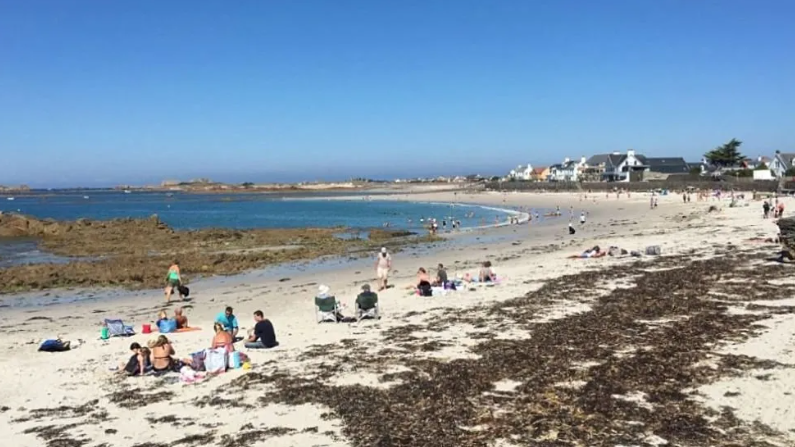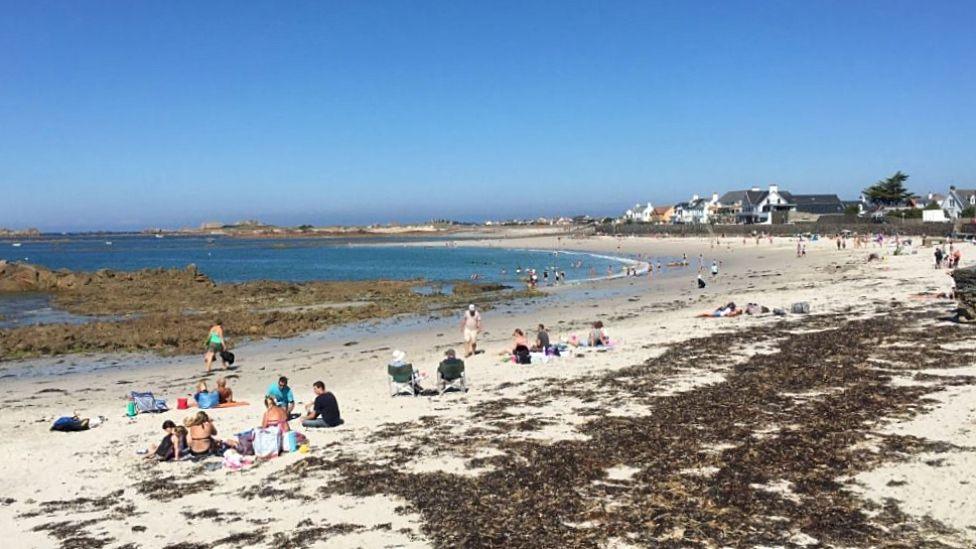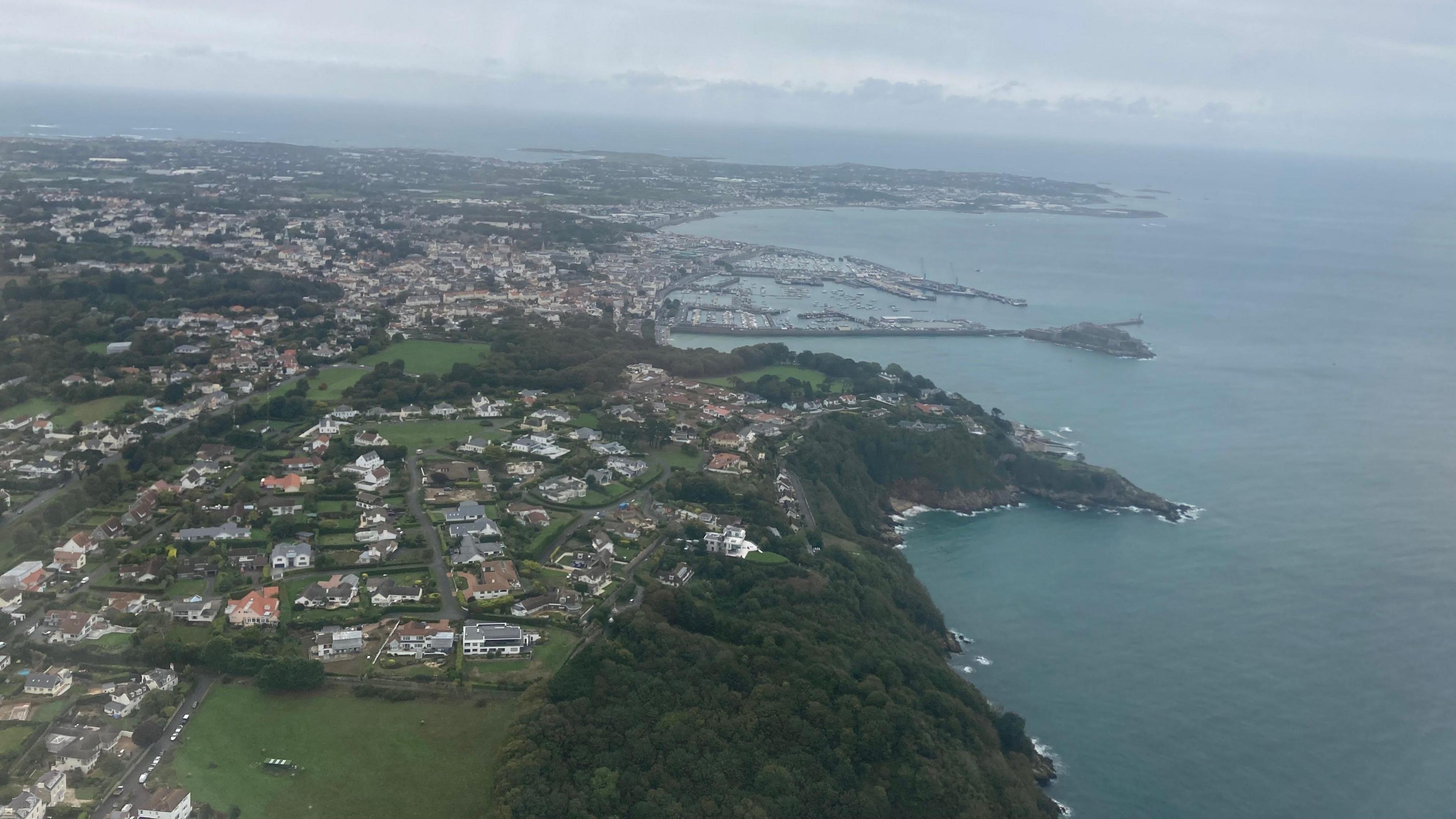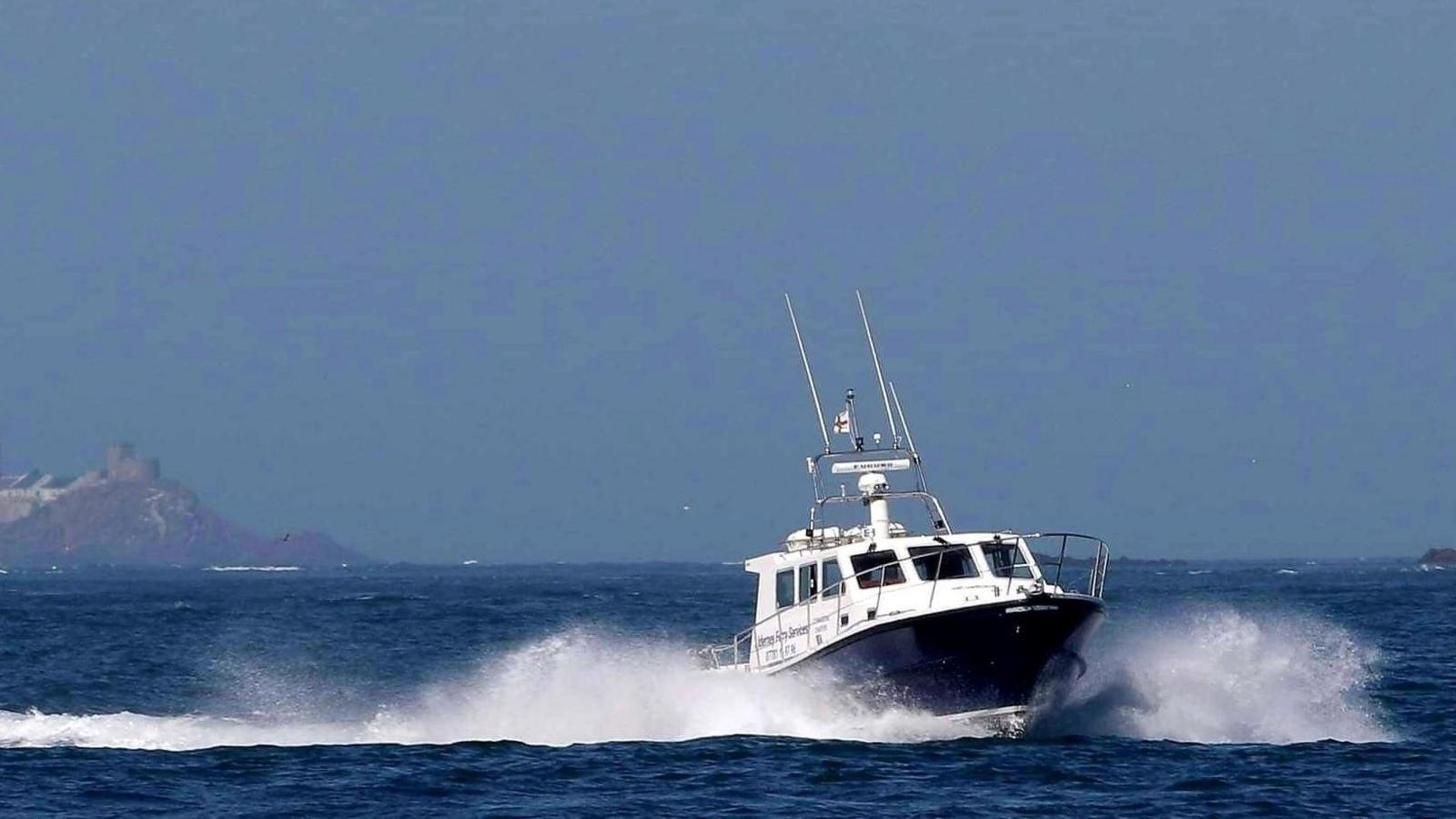Public health issues sun safety advice

People have already suffered from burned skin this year in Guernsey
- Published
Islanders are being reminded about keeping safe in the sun, as they are "more at risk than other parts of the British Isles".
The States of Guernsey said this is because the island has high levels of ultraviolet (UV) and many people have outdoors lifestyles.
Di Mathews from Public Health said over exposure to UV rays from the sun could damage the skin and lead to skin cancer.
"There is no such thing as a healthy tan," she said.
'Spreading the message'
"It’s important to start spreading this message early in the year because our skin is most vulnerable after the winter months.
"We’ve already seen high UV levels and burned skin during April so it’s important to start protecting ourselves early in the year."
She advised islanders to keep sun cream somewhere easily accessible to avoid being "caught out".
'10-minute bursts'
The States also explained the importance of vitamin D for strong bones, and advised "10-minute bursts of exposure" could be good for people's health.
Clinical Nurse Specialist for Dermatology, Sofia Gouveia, said there were signs to look out for to help the early diagnosis of skin cancer.
Ms Gouveia said there were two main kinds of skin cancer, including melanoma and non-melanoma, which look different.
"One of the most important things to identify when checking your skin is to look for anything that stands out from the rest, for example a difference in colour to the rest of your moles," she said.
"You should tell your doctor about any changes to your skin or moles."
You can find out more information about the early signs of skin cancer and how to prevent sun damage on Cancer Research UK's website, external.
Follow BBC Guernsey on X (formerly Twitter), external and Facebook, external. Send your story ideas to channel.islands@bbc.co.uk, external.
Related topics
- Published16 June 2022

- Published2 May 2024

- Published1 May 2024
